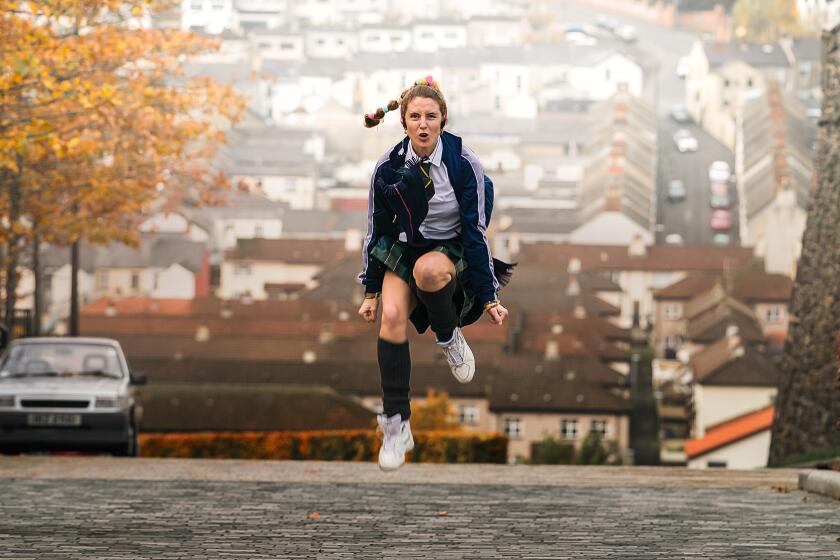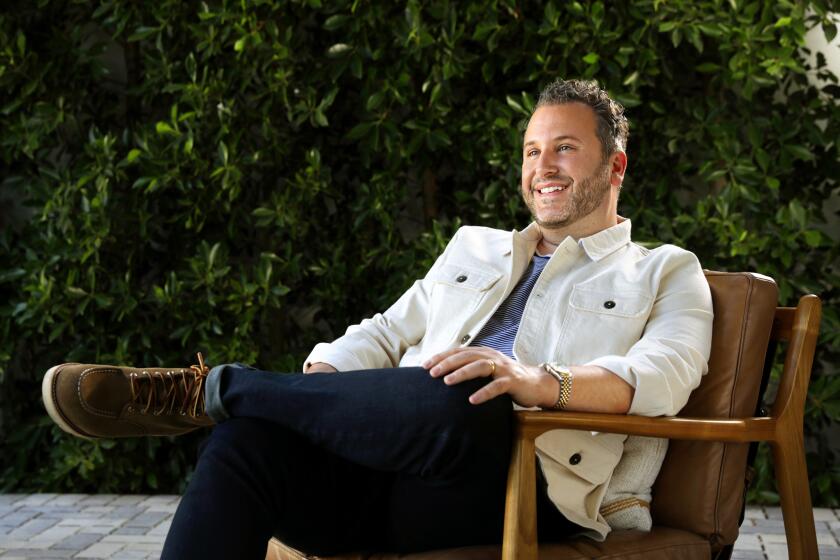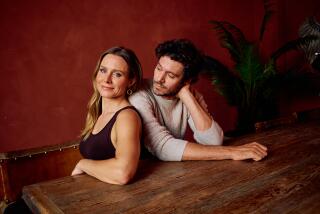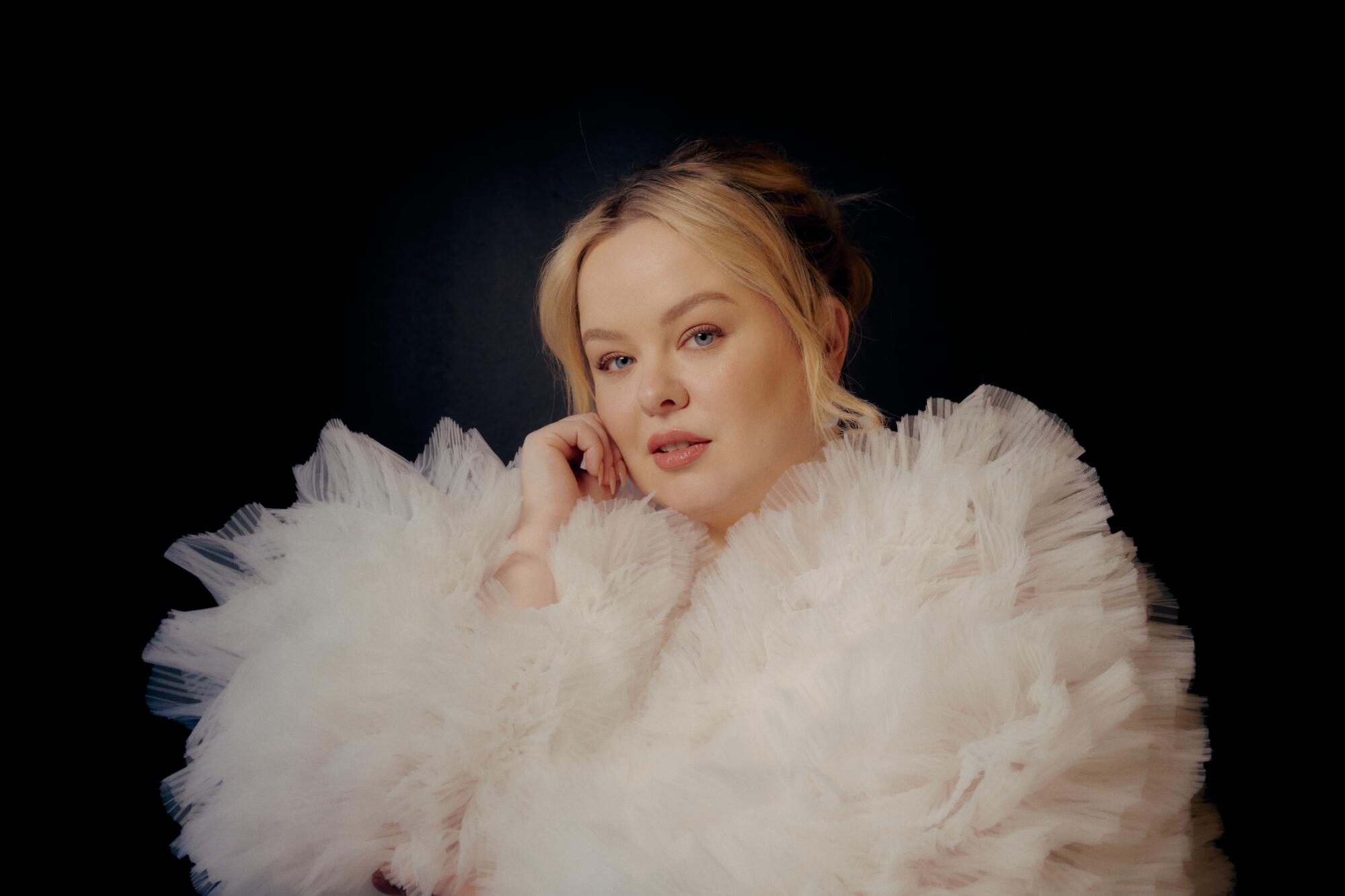
There it was, on the table in Nicola Coughlan’s apartment — a microscopic undergarment that loomed large in the actor’s mind.
The “Bridgerton” costume department had sent Coughlan home with a piece of intimacy wear that was essentially a strapless thong that would cover the bare essentials of her body during an upcoming love scene.
It would be her first time ever acting in such a scene, in a series known globally for its sexy yet empowering bedroom romps, and it would require her to be almost totally naked in front of people she’d worked with for years. Coughlan was understandably terrified. One night, she poured herself a margarita and summoned the liquid courage to try on the tiny sliver of fabric.
“I went to the bathroom and looked in the full-length mirror. I was like, ‘Absolutely not.’ I hid it down the bottom of the laundry basket,” Coughlan recalled on a cold morning in January at Netflix’s offices in Manhattan. “I was like, ‘How am I going to do this?’”
Coughlan eventually got over her nerves. Much to her surprise, she found the process of filming the scenes with her co-star Luke Newton creatively satisfying — liberating, even. “By the end of the day, we were both lying under a blanket, not clothed, just chillin’. We were like, ‘This is why nudists do it,’” said Coughlan, who speaks in a rapid, melodious accent that only adds to her natural exuberance.
While discussing the arc of her career, she goes on joyful digressions, praising everything from Mrs. Renfro’s salsa to Ryan Gosling’s performance in the forgotten teen series “Breaker High” to “Saturday Night Live,” which she’s just attended for the third time and hopes to host one day (are you listening, Lorne Michaels?).
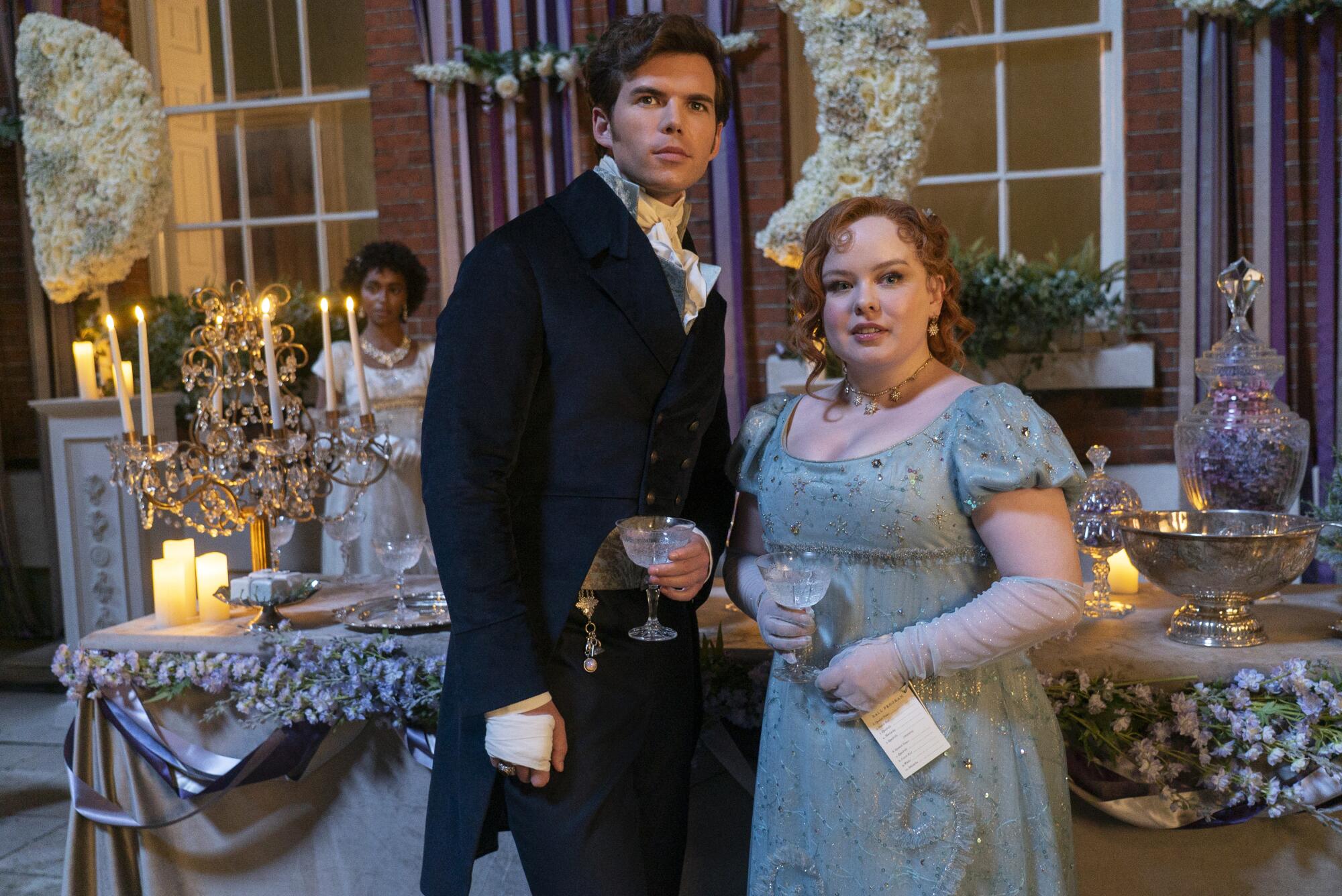
She is nothing if not enthusiastic, and she brings this level of passion to Season 3 of “Bridgerton,” the first half of which will return to Netflix on Thursday. Until now, her character, Penelope Featherington, has been content to be a wallflower in the ballrooms of Regency London, allowing her to observe and secretly write a society scandal sheet under the pseudonym Lady Whistledown.
But this season will focus on Penelope as she — spoiler alert — consummates her long-simmering crush on Colin Bridgerton (Newton) in a friends-to-lovers storyline with distinct rom-com overtones. Penelope’s move into the center of the narrative also meant that Coughlan faced new pressures as the lead in one of the most watched and dissected shows on Netflix.
“With Penelope this season, it felt like there were so many things that were reflected in real life. The whole theme of her stepping out of the shadows and into the light, and not feeling quite ready — I felt like I had to do that,” said Coughlan.
“It was really challenging. It was terrifying. It was cathartic. It was a million and one things,” she added. “I loved it.”
She juggled “Bridgerton” with an edgy turn in “Big Mood,” a “Fleabag”-esque dark comedy released last month on Tubi. On top of that, she also had a small role in the biggest box office hit of 2023, “Barbie” — she wanted to do more but, alas, her schedule was too packed — and filmed a guest appearance in the “Doctor Who” Christmas special to be released later this year.
It amounts to a long-simmering breakout moment for Coughlan, who is 37 but thanks to a preternaturally dewy complexion often plays characters who are much younger than she is, like a Catholic high school student in the Troubles-themed sitcom “Derry Girls.”
“It was very exciting to play grown women. But I was like, ‘Can I do that?’ Even in drama school, they would always cast me as the random kid, like, there was an Ibsen play called ‘Little Eyolf,’ and I had to play Eyolf. I was like, ‘This is gonna be me forever.’”
Historians help us sort through fact and fiction in executive producer Shonda Rhimes’ saucy Netflix drama about the 19th century English marriage market.
Raised in County Galway on the western coast of Ireland, she grew up liking whatever her older siblings were into — whether it was Nirvana or “Wayne’s World.” When her sister starred in the school play, Coughlan showed up in a sequined vest, looking like a little Liza Minnelli — as if she knew she also wanted to be onstage. (She still has a taste for eccentric glamour: Despite the wintry gloom, she’s decked out in a gold spangled dress and a cloud-like ruffled bolero.)
At age 9, she scored her first professional gig, a movie called “My Brother’s War” starring James Brolin. She got the day off from school, but she wanted more. “I used to look at the Olsen twins. I was like, ‘God, look, look at where they are,’” she joked. As a teenager, she did regular voice work in cartoons. Her father, who was in the Irish army (as a teenage cadet, he took part in U.S. President Kennedy’s funeral in 1963), and mother, a stay-at-home parent, were supportive but also baffled by their youngest child’s dramatic streak. “It’s really not in my family at all,” Coughlan said.
After graduating from the National University of Ireland Galway, Coughlan enrolled in a foundational course at the Oxford School of Drama in England, where she quickly bonded with fellow student Camilla Whitehill.
“We were the only people there that really cared about things being funny,” said Whitehill, a playwright who would go on to create “Big Mood” as a vehicle for her old drama school friend. “Everyone else just wanted to do plays where their family had died, or whatever.”
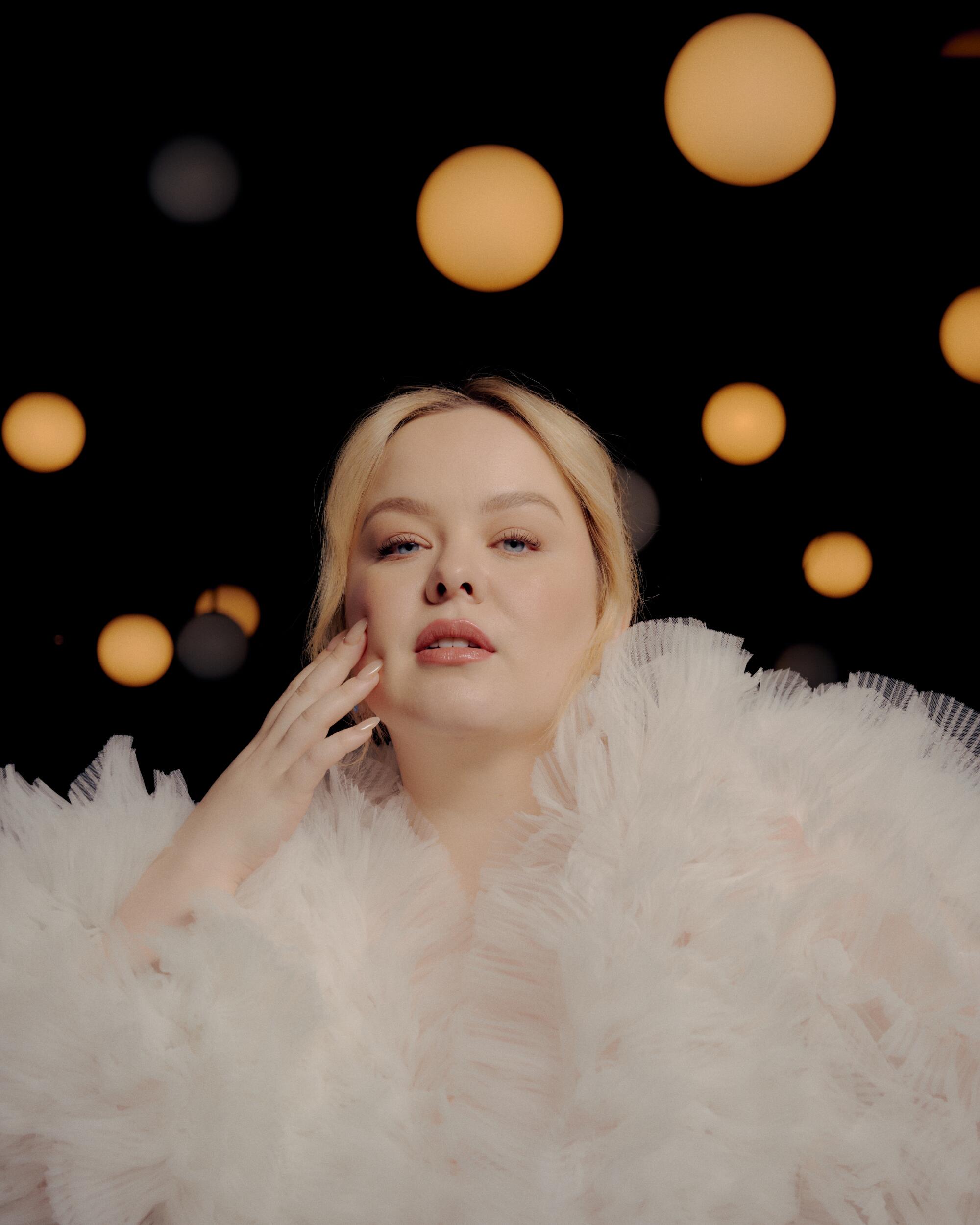
Coughlan, ever the pop culture connoisseur, introduced Whitehill to the sitcom “Arrested Development.”
“She’s one of those people who, if she thinks you will like something, she will make you watch it. And she is — annoyingly — usually right,” added Whitehill. (More recently, Coughlan urged her friend to catch up on “The Real Housewives of Salt Lake City.” “It’s such an easy one to sell to people. I’m like, ‘One of them is a cult leader who’s married to her granddad; are you in or are you out?’” Coughlan said.)
They both eventually landed in London, where “neither of us was successful at all for our whole 20s,” said Whitehill, who would often cast Coughlan in “my bad unpaid short plays at pubs,” including one where Coughlan played a cat.
“You leave drama school, which is a lovely, cozy bosom where you get to do the thing you love every day. Then you go, ‘Hang on. Thousands of people leave drama school every year, and they want to do the exact job I do.’ It seems so improbable that you’ll make a living doing it,” said Coughlan. “I felt like a loser at so many points.”
‘Derry Girls’ creator Lisa McGee breaks down the Netflix series’ final season, including its ‘tricksy’ timeline and THAT surprise cameo.
One such nadir came when she was working at a frozen yogurt shop at a mall in West London and the cheap jeans she wore as part of her uniform tore “right up the butt crack.” It was sobering, she said. “I was like, ‘This is not the life I wanted.’”
By the time she was in her late 20s, she’d moved back home and was working for an optician in Galway. Then she saw a listing for an open casting call for a festival of plays being put on by the Old Vic Theatre. Even though she was broke, she flew back to London for the audition and landed a part in a play called “Jess and Joe Forever.”
It marked a turning point for Coughlan, who was soon cast as studious teen Clare Devlin in Channel 4’s “Derry Girls,” a project she was drawn to because of its vividly drawn female characters.
“They were all really distinct — young women who were ballsy and foul-mouthed,” she said. She convinced herself that the show would flop because “people hate women trying to be funny.” Instead, the show was a massive hit in the U.K. and earned a devoted following in the U.S. when it was picked up by Netflix.
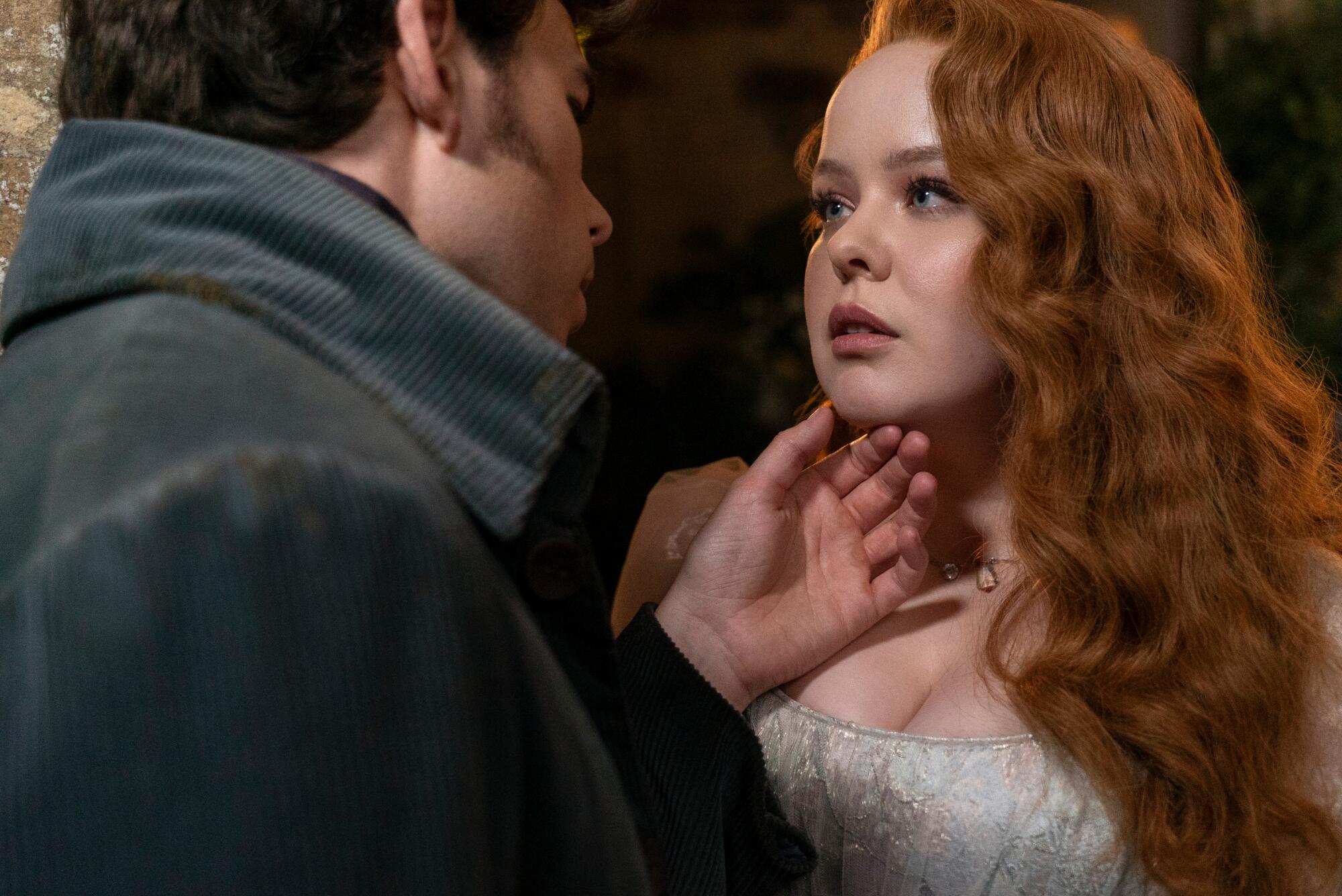
Then, Shonda Rhimes came calling about “Bridgerton.” After a single audition, Coughlan was cast as Penelope, a thoughtful, sharp-witted young woman with an overbearing mother and tacky, dim-witted sisters. Season 1 was released in late 2020, when much of the world was staying home because of the COVID-19 pandemic-related closures, and it became a sensation.
Whitehill recalls going out with her friend once restrictions had lifted in the U.K. and sensing how much had shifted. “It’s such a weird, un-put-into-words-able experience to watch someone you know for such a long time become globally famous,” she said. The fact that Coughlan didn’t find success straight out of school “has grounded her significantly, which means that she doesn’t let it go to her head.”
Success has not come without complications, however, like the relentless media scrutiny around Coughlan’s physical appearance. “It’s really hard and feels [like] s—,” she said.
In 2018, she wrote an essay for the Guardian responding to a theater critic who described her character in a London production of “The Prime of Miss Jean Brodie” as “an overweight little girl.” Coughlan is determined to push back against this kind of casual body-shaming because, she said, “I grew up at a time where it was so overt. There was the circle of shame for cellulite [in magazines] — just horrific, horrific messaging.”
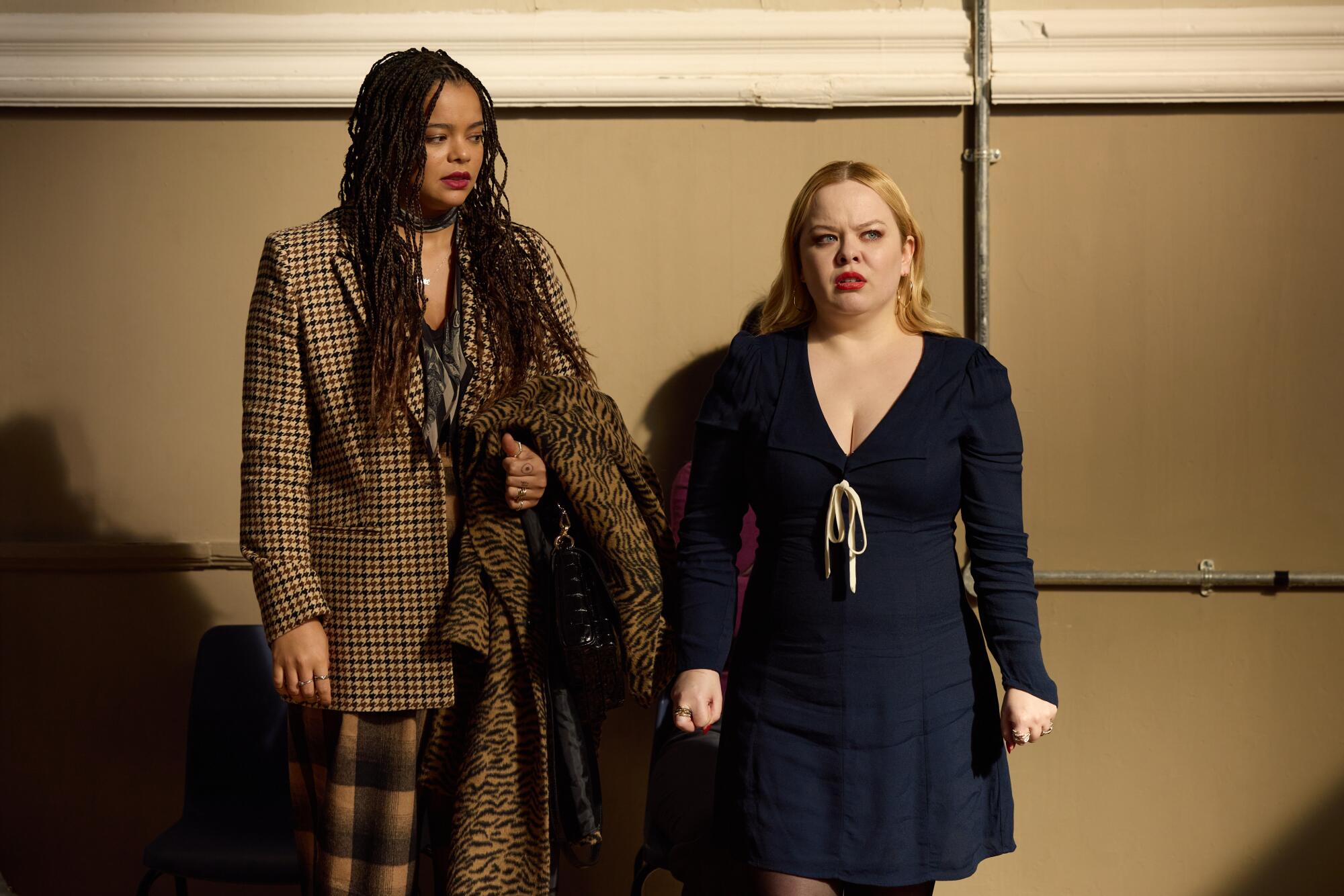
It’s also why this season of “Bridgerton,” which celebrates the allure of a character often overlooked as a wallflower, is so meaningful to Coughlan — and why she suspects it will resonate with so many viewers. Rhimes and showrunner Jess Brownell decided Season 3 should deviate from the timeline in Julia Quinn’s novels and focus on Penelope and Colin — a couple known to fans as “Polin.”
“We’ve watched Colin not quite understand that Penelope has a crush on him for two seasons. You can only play that dynamic out for so long before it gets frustrating,” said Brownell.
Chris Van Dusen breaks down Season 2 of the Netflix juggernaut, from a new, more chaste approach to the central romance to writing out Regé-Jean Page.
Stepping into the lead meant Coughlan would need to be on set nearly every day for eight months straight. But if she was overwhelmed at first, she didn’t let on. “She just seemed so game and ready for anything on set,” said Brownell. “If anything, I just noticed how seriously she was taking her preparation.”
Coughlan was insightful and collaborative, said Brownell, sharing an endless stream of ideas about her character in a WhatsApp group chat with Newton and Brownell. She had suggestions for specific music cues and for Penelope’s makeover, which sees her ditching her tight red poodle curls and garish citrus-hued gowns for loose waves and cool blues and greens. Coughlan is also very plugged into the fandom, and she advocated for including a scene, important to novel readers, in which Penelope calls Colin “Mr. Bridgerton.”
As if that weren’t enough, she even found time to bake fresh Irish soda bread and bring it to set.
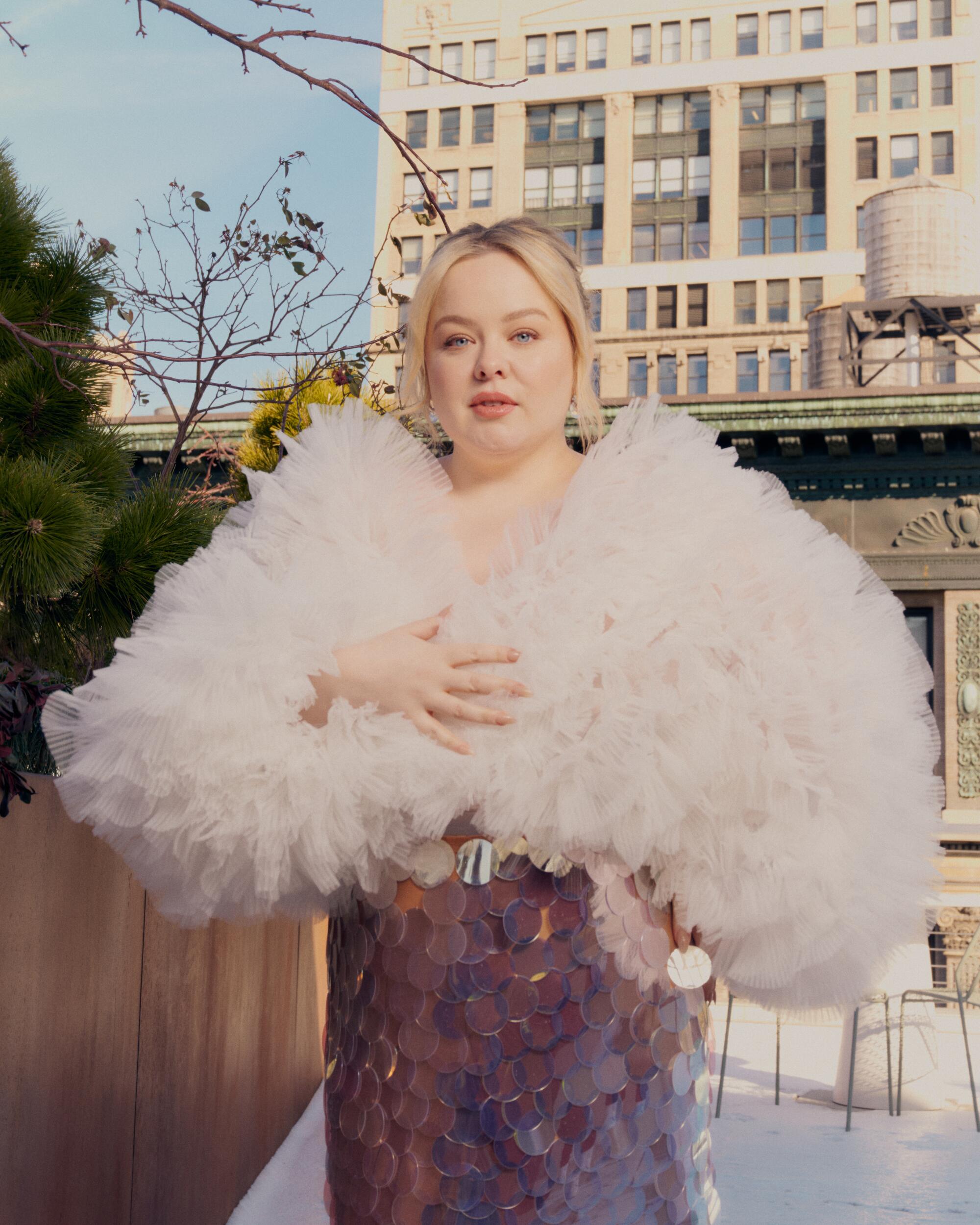
This season is “a lot lighter and more playful than we’ve been able to be in the past,” Brownell added. The writing leans into Coughlan’s strengths as a comedic performer, particularly her knack for awkward banter, a skill she deploys as Penelope throws herself into the London social season in a bid to find a husband.
Coughlan, who enjoyed being, as she put it, “the weirdo in the background” for the first two seasons of “Bridgerton” and who idolizes women like Tina Fey, Amy Poehler and Kristen Wiig, said it was a thrill “to play Penelope as goofy and terrible with men.”
Like Coughlan, Newton was nervous about filming the love scenes but found the anxiety quickly dissipated after the first take. “We both had a similar outlook — it’s like doing comedy because you’re having to put yourself out there and feel exposed and risk something,” said Newton (who watched “Hamilton” at Coughlan’s recommendation and loved it, just as she predicted.) Because of how these moments focus on consent and emotional intimacy, “It was essential that we were friends,” he said.
The co-stars were especially heartened to hear from a burly security guard named Dave who has worked on “Bridgerton” since Season 1 and was moved by the romance he watched them act out on set.
“He came to Luke and I and said, ‘I don’t normally watch shows like this. Something about this season is very special, and I’m very proud of you,’” Coughlan recalled.
For several weeks, Coughlan was filming “Bridgerton” and “Big Mood” at the same time. She coped with the stress by watching “Vanderpump Rules” from the beginning.
“It’s a testament to how nosy I am that I heard people talking about Scandoval, had no frame of reference and was like, ‘Well, I need to know,’” said Coughlan, now a superfan who recently threw a “Vanderpump”-themed housewarming party and made a beeline to take a selfie with Ariana Madix when she was at “SNL.” It’s not just escapism: She also finds creative inspiration in reality TV personalities, channeling some of Lala Kent’s mannerisms into her character in “Big Mood.” “You forget how f— weird people are, how bizarre they can be,” she said.
In January, Coughlan had not yet seen the new season of “Bridgerton.” But by phone in early May, she said she’d finally watched the episode in which Colin and Penelope sleep together, nervously, by herself in a hotel room. Once again, the anticipation was worse than the thing itself.
“I laughed and cried and I was like, ‘Oh, my God, it’s amazing,’” she said. “They’re not titillating just to be titillating, even though we hope they are sexy. There’s so much about female pleasure and positive sexual experiences, and we don’t get enough of that onscreen.”
Coughlan has reached a bittersweet crossroads on “Bridgerton,” now that her character’s big season has wrapped and she will soon return to being “the weirdo in the background.” But she has no regrets.
“We left it all on the pitch. There’s nothing I wanted to do this season that I didn’t get to do,” she said. “And that’s a rare thing.”
More to Read
The complete guide to home viewing
Get Screen Gab for everything about the TV shows and streaming movies everyone’s talking about.
You may occasionally receive promotional content from the Los Angeles Times.
